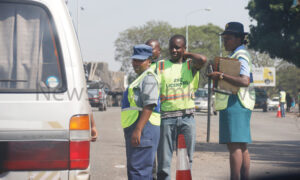CLAIM: Zimbabwe has passed a law that outlaws criticism
SOURCE: Reuters/Times LIVE
VERDICT: False
Zimbabwe’s lower House of Parliament on May 31 passed the Criminal Law Code Amendment Bill, which provides for the crime of “wilfully damaging the sovereignty and national”, earning the Bill the moniker “Patriotic Bill”.
The Bill has gained widespread local and international coverage as well as social media debate.
Under the headline “Zimbabwe’s ‘Patriotic Bill’ Outlaws Criticism of Government Before Election”, Reuters news agency reported: “Zimbabwe’s parliament has outlawed criticism of the government ahead of presidential and parliamentary elections in August, with violations of a new law punishable by up to 20 years in jail.”
Credit: Forbes Africa
South Africa’s TimesLIVE headlined its own report: “Zimbabwe passes bill outlawing criticism of government.”
The facts
There is no provision in the Bill that outlaws criticism of the government.
According to the Bill, a Zimbabwean citizen commits a crime if they actively participate in a meeting convened by a foreign government, if the citizen knows the meeting is “to consider or plan armed intervention in Zimbabwe by the foreign government, or to subvert or overthrow the constitutional Zimbabwean government, or to consider, implement or extend sanctions or a trade boycott against Zimbabwe, or against an individual or official if the sanctions or boycott affect a substantial section of the people of Zimbabwe.”
Penalties for a meeting that discusses armed intervention in Zimbabwe are the same as those of treason, which is a death sentence or life in prison. An offender gets 20 years for a meeting that discusses “subverting constitutional government”. For a meeting discussing sanctions, the penalty is a fine and 10 years in jail or both.
Concerns
While it is not true that the law outlaws criticism, legal experts are concerned about the wording of the Bill and its impact.
Legal watchdog Veritas says: “Opposition activists who even mention sanctions in the presence of a foreigner may find themselves arrested and put on trial, and because of the vagueness of the crime and the difficulty of proving it, their trials will drag on for months and even years.”
Zimbabwe Lawyers for Human Rights said the bill’s provisions are “vague, lack certainty, are imprecise, and are thus prone to abuse by law enforcement”.
Conclusion
There are concerns about the drafting of the Patriotic Bill and its likely impact on government opponents, but it is not true that the Bill makes it illegal to criticise the government, as widely reported.











